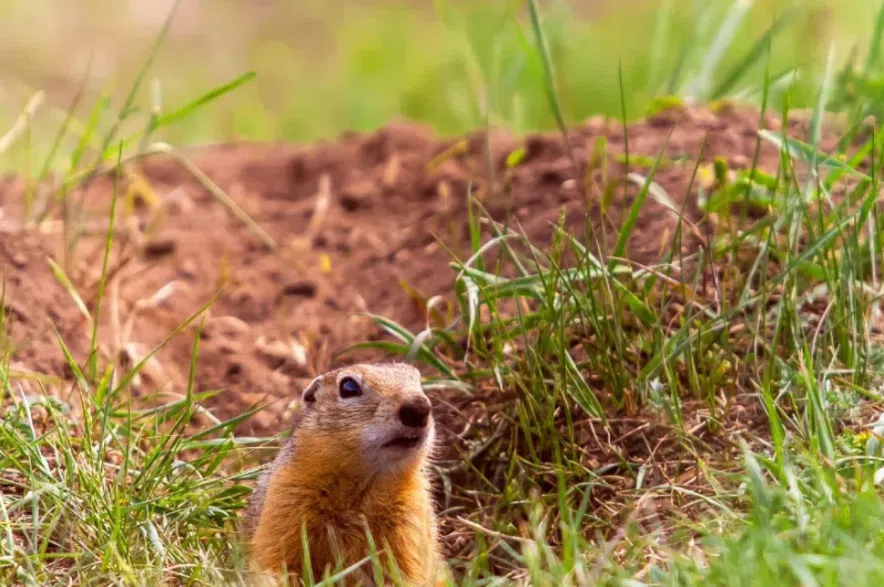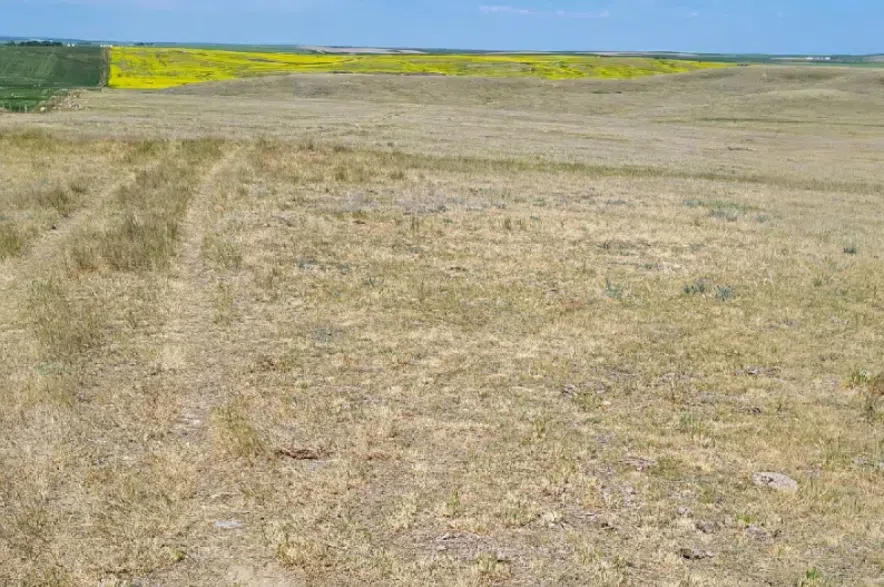Responding to the concerns of farmers will require intergovernmental collaboration.
That’s according to Saskatchewan’s Agriculture Minister Daryl Harrison, who met with a group of farmers from southwestern Saskatchewan to hear about the drought-like conditions they’re working with.
Harrison discussed the details of his meeting on the Evan Bray Show, saying how some farmers were asking for the province’s help to salvage a little seed from their crops.
“(There) isn’t a lot out there, but it would be a small help. So, we’ll ask the feds to see if that’s a possibility,” he said.
Listen to the full interview here:
Read more:
- ‘Can’t buy your way out of drought’: Southwest farmers continue to deal with dry conditions
- Recent rainfall a drop in the bucket for southwest Saskatchewan farmers
- Sask. Farmers, NDP push for drought relief as province outlines new supports
That’s not the only request being made to the federal government.
Another concern Harrison’s heard has to do with Richardson’s ground squirrels–or gophers.
He said the Saskatchewan Association of Rural Municipalities (SARM), the Agricultural Producers Association of Saskatchewan (APAS) and individual producers have asked for help controlling the population.

Ag Minister Daryl Harrison said gopher populations are a “regional issue” impacting mainly Saskatchewan and Alberta. (k_v / Depositphotos.com)
Harrison explained how two years ago, producers were able to use the pesticide strychnine so long as they already owned it.
Now, it’s not allowed for use at all.
According to Harrison, the new products aren’t as effective because there’s a narrow timeline for when they can be applied.
“You have to do it before there’s any green out there in the fields or the pastures, and that’s not always easy for a producer to get done. So, strychnine was a little more effective,” Harrison said.
He brought the issue to federal Agriculture Minister Heath MacDonald, who seemed “very receptive” to the idea of bringing strychnine back.
While nothing’s changed yet, Harrison said he’ll continue to push.
Federal government not working “fast enough”
When asked if there’s anything the provincial government can do without requesting help from the federal government, Harrison said most issues require their cooperation.
It’s because the premiums of Saskatchewan’s risk management programs are cost-shared with the federal government.
“As part of that, they have to be on the side with any changes,” Harrison said.
That partnership extends to crop insurance payments, which started being sent out on July 15.
It means producers can benefit from the money sooner, instead of having to wait around till the fall, according to Harrison.
Despite their close working relationship, when asked whether the federal government was focusing enough on agriculture, Harrison said, “point blankly, no.”
“I don’t think they’ve done enough fast enough,” he said. “Prime Minister Carney has reached out to China specifically, finally, but the promise was made … that he would engage with China prior to the election, and that didn’t actually happen.”
These comments came after Carney’s announcements to support the steel industry.
Harrison said agriculture is an important Saskatchewan industry, mentioning products like canola oil, canola meal, which continue to be affected by Chinese tariffs.











